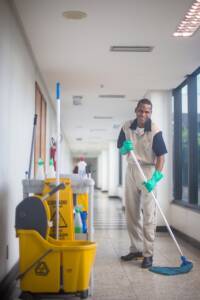
Finding a reliable plumber for repairs can be a daunting task, especially in urgent situations. Local plumbing services are often available to address a variety of issues, from leaks to clogged drains, ensuring timely and effective solutions. Residents often benefit from searching for “plumber repair near me” to connect with qualified professionals in their area.
Many factors can influence the choice of a plumber, including availability, experience, and customer reviews. Engaging a local plumber not only supports the community but also facilitates quicker response times. It’s essential to focus on credentials and service quality when making a selection.
With numerous options available, understanding what services are provided can simplify the decision. Whether it’s routine maintenance or emergency repairs, local plumbers are prepared to tackle any plumbing challenge efficiently. A prompt search for nearby plumbing services can lead to swift resolutions and peace of mind.
Finding the Right Plumber
Choosing the right plumber involves considering local availability, qualifications, and emergency services. Each aspect plays a crucial role in ensuring effective repairs and customer satisfaction. The following sections highlight key considerations for selecting a plumber.
Local Plumbing Services
When searching for plumbing services, local options provide several advantages. Local plumbers are familiar with the specific plumbing codes and regulations of the area. They can often respond quickly to service calls, reducing downtime.
It’s beneficial to check customer reviews and testimonials for local plumbers. This feedback provides insight into the quality of service and reliability. Listing local plumbers in your area can help narrow down choices. Here’s a simple way to begin:
- Ask for recommendations from friends or family.
- Search online for local plumbing companies.
- Check social media for customer feedback.
Qualifications and Experience
Qualifications and experience are essential factors in plumbing repairs. Certified plumbers have completed the necessary training and understand advanced plumbing systems.
Inquire about their education and any specialized training. Experience often translates into better problem-solving skills and quicker repairs. A plumber’s track record is important – ask for references if needed. Important qualifications include:
- Licensing: Verify that the plumber is licensed in your state.
- Insurance: Ensure they are insured to protect against damage during work.
- Certifications: Look for plumbers with additional certifications that demonstrate their expertise.
Emergency Repair Services
Plumbing emergencies can occur at any time and require prompt attention. A reliable plumber should offer 24/7 emergency services.
Understanding their response time is critical. Many plumbing companies will advertise quick response times, but it’s essential to verify this based on reviews. An effective emergency plumber will:
- Provide contact information that is easy to reach.
- Clearly communicate rates for emergency service calls.
- Offer a detailed plan for urgent repairs.
Choosing a plumber with excellent emergency service can save considerable stress and expense during unexpected situations.
Understanding Plumbing Repairs
Plumbing repairs address a range of common issues that can occur in both residential and commercial settings. Knowing how to identify these problems and the procedures for resolving them can save time and money.
Common Plumbing Issues
Some of the most frequent plumbing issues include:
- Leaky faucets: Dripping faucets often stem from worn-out washers or seals.
- Running toilets: A malfunctioning flapper valve or float can lead to constant running.
- Clogged drains: Buildup from debris or grease can cause slow drains or backups.
- Burst pipes: Cold weather or corrosion can lead to pipes bursting, causing significant water damage.
Recognizing these issues early can help homeowners avoid more complicated repairs down the line.
Diagnostic Procedures
Effective plumbing repair starts with proper diagnostics. Common diagnostic methods include:
- Visual inspection: A thorough look for signs of leaks or damage.
- Water pressure testing: Identifying pressure inconsistencies can reveal hidden leaks.
- Camera inspection: Using a plumbing camera allows professionals to see inside pipes without excavation.
- Acoustic detection: Special equipment can detect water flow sounds that indicate leaks behind walls or underground.
These methods provide insights into the underlying problem, leading to more efficient repairs.
Repair and Replacement Options
Once the issue is diagnosed, the next step involves selecting the appropriate repair or replacement options. Here are some common solutions:
- Seal replacements: Replacing seals or washers can fix leaky faucets and prevent water waste.
- Pipe repair methods: Techniques such as epoxy coating or pipe lining can restore old, damaged pipes without full replacement.
- Fixture replacement: Outdated or malfunctioning fixtures may require complete replacement for efficiency and function.
- Drain cleaning services: Professional cleaning can eliminate clogs and restore proper drainage.
Choosing the right option depends on the severity of the issue and the long-term needs of the plumbing system.
Vaishno Devi Helicopter Ticket Price: A Comprehensive Guide for Pilgrims
Vaishno Devi is one of the most revered pilgrimage sites in India, attracting millions of …